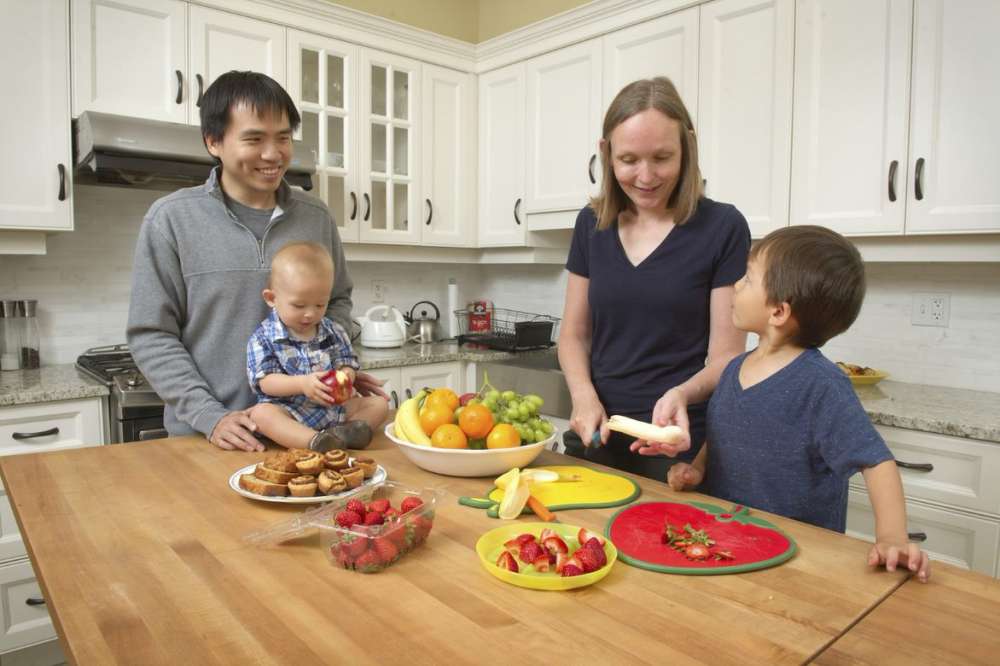
Building healthy Canadian cities for the ever-growing urban population is the purpose of a new $5-million, six-year national training grant led by the University of Guelph that was announced today.
The novel project, called Implementing Smart Cities Interventions to Build Healthy Cities (SMART) Training Platform, is intended to develop a new generation of health, social sciences and humanities, engineering and environmental sciences researchers to help make cities healthier, more livable and more resilient.
The project will equip students with multidisciplinary skills needed to help run and manage the ever-more complicated cities of tomorrow, from healthy food and green space to public transportation to housing and social services, said Dr. David Ma, professor in the Department of Human Health and Nutritional Sciences (HHNS), and principal investigator for the project.
“There’s never been a training program like this focused on healthy cities, said Ma.
Noting that eight out of 10 Canadians live in urban centres, he said, “Cities have become more complex entities requiring greater expertise with programs and initiatives that support citizens. We need specialists with implementation skills to work across different disciplines and domains.”
The $4.95-million research training platform was announced today by Patty Hajdu, federal Minister of Health, and François-Philippe Champagne, Minister of Innovation, Science and Industry.
The platform is supported by all three main federal funding agencies: the Canadian Institutes of Health Research (notably its Healthy Cities Research Initiative); the Natural Sciences and Engineering Research Council; and the Social Sciences and Humanities Research Council.
“I am very proud to see the University of Guelph take the lead in this cross-discipline initiative, collaborating with other cities that have been recognized by the federal government for their smart approach to urban development, and providing students with the opportunity to further develop skills they can apply to further public service,” said Guelph MP Lloyd Longfield.
The project brings together 48 researchers at 10 institutions across Canada. Co-leaders are Dr. Laurette Dubé, a professor at the University of Montreal, and Dr. Miyoung Suh, a professor at the University of Manitoba.
Ten investigators from U of G’s College of Biological Science, the Ontario Agricultural College, the Gordon S. Lang School of Business and Economics and the College of Social and Applied Human Sciences will focus on food, nutrition and health issues within the new network.
“This generous federal funding to the team led by Dr. Ma underscores yet again how U of G’s strengths in interdisciplinarity, partnership and knowledge mobilization create catalysts to solve truly grand challenges such as human health in our cities,” said Dr. Malcolm Campbell, vice-president (research).
“The Healthy Cities initiative will build on our Smart Cities connections with the City of Guelph and partnerships across the country to create a remarkable platform that equips U of G grads with the skills to manage complex issues in urban Canada and to improve lives for so many people.”
Researchers at Canada’s food university will draw upon long-standing expertise across many departments and current projects, including the Arrell Food Institute, the Food from Thought program and the Guelph Family Health Study, co-led by Ma.

The importance of ensuring food security in Canada’s cities has been underlined during the COVID-19 pandemic, said Ma.
Noting that food insecurity is linked to poor physical and mental health outcomes, he said, “Food security and resilient food systems are critical to building healthy cities.”
This project will develop a national training program that complements collective efforts supporting major investments, moving knowledge into action with a thematic focus on health, food security and resilient food systems.”
Involving all nine partner institutions, the SMART Training Platform will deliver new curriculum and experiential learning to hundreds of trainees, including undergraduate and graduate students and post-docs. It will also offer a summer institute and annual conference and will provide access to a virtual resource hub intended to support a planned certificate program.
Ma said grads will ultimately work in key positions in government, health, academia and other areas.
“At the University of Guelph, we pride ourselves as a comprehensive university,” he said. “This project really showcases our commitment to training the next generation of experts across many different fields. We’re equipping trainees with the tools and knowledge to be competitive in the 21st century.”
The new project builds on Smart Cities proposals developed by Guelph, Montreal and the Opaskwayak Cree Nation in the town of The Pas in Manitoba.
In 2019, U of G partnered with the City of Guelph, Wellington County, Conestoga College and other local groups in a winning $10-million Smart Cities Challenge to develop Canada’s first circular food economy.
“Smart City projects are intended to empower communities – people – to make change through innovation, which starts with real-world experience,” said Barbara Swartzentruber, executive director of Guelph’s Smart Cities Office.
“We’re excited to join the University of Guelph and Smart Cities communities in Quebec and Manitoba to support experiential learning and training in our regional circular food economy programs. Participating in the network of Our Food Future projects will prepare a new generation to contribute to a more equitable and sustainable society.”
Along with Ma, U of G researchers involved in the SMART Training Platform are:
- Drs. Jess Haines and Dalia El Khoury, Department of Family Relations and Applied Nutrition;
- Drs. Evan Fraser and Kate Parizeau, Department of Geography, Environment and Geomatics;
- Dr. Jennifer Monk, HHNS;
- Dr. Tirtha Dhar, Department of Marketing and Consumer Studies;
- Dr. Steven Clarke, School of Environmental Design and Rural Development;
- Dr. Mike von Massow, Department of Food, Agricultural and Resource Economics; and
- Dr. Maria Corradini, Department of Food Science.
Contact:
Dr. David Ma
davidma@uoguelph.ca